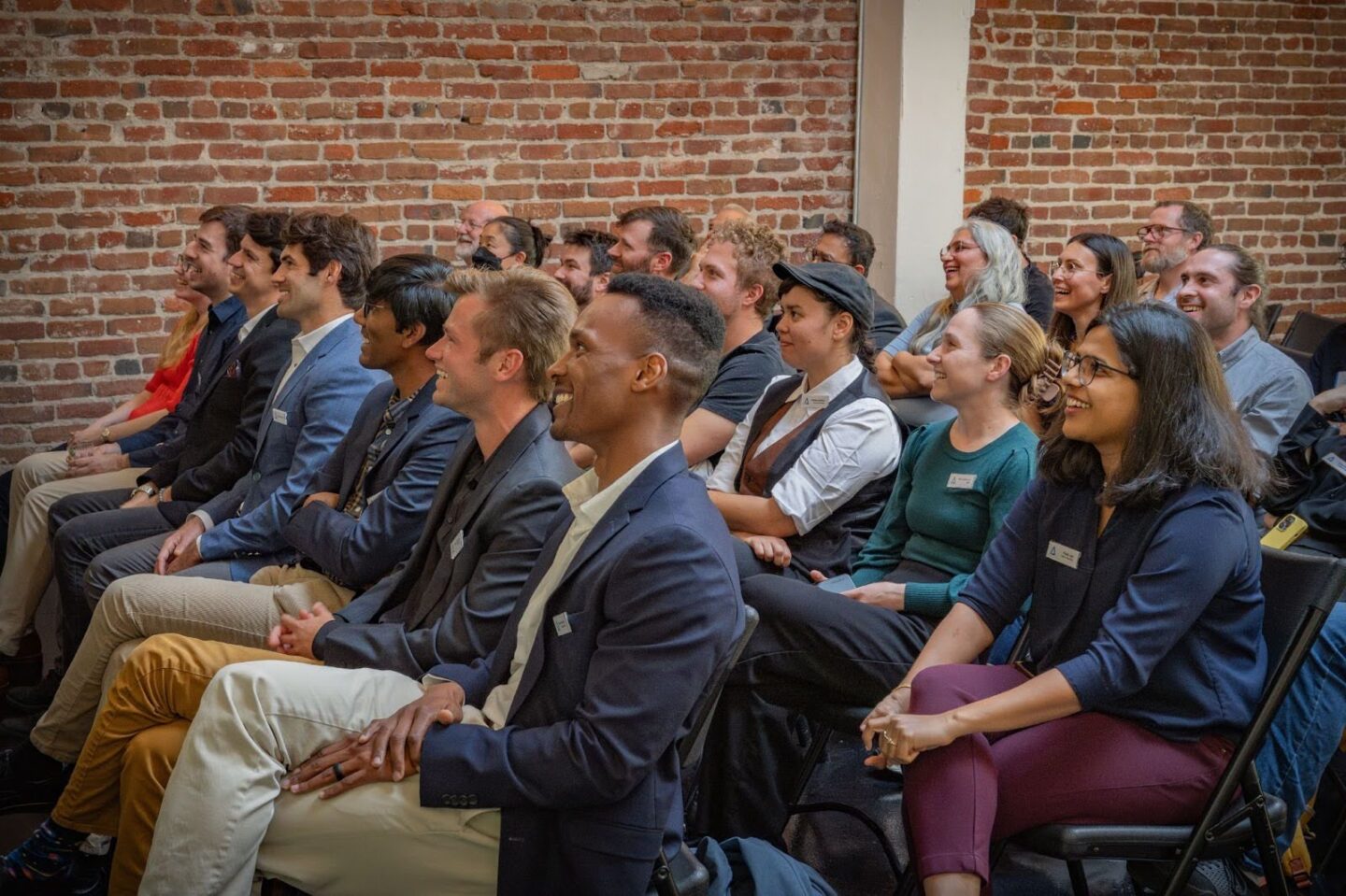Cyclotron Road, an entrepreneurial fellowship program at Lawrence Berkeley National Lab (Berkeley Lab), recently hit a significant milestone. Less than 18 months after surpassing $1 billion, the companies led by Cyclotron Road entrepreneurial fellows past and present have now exceeded $3 billion in total follow-on funding. Companies have secured this new funding from private and public sources to accelerate the scaling of new technologies across sectors including industrial biotechnology, energy, computing, and heavy metal therapeutics.
Follow-on funds will be used to build new or upgraded manufacturing sites with significant production capacities. Some of these companies will also use funds to continue their technological innovations, whether treatment for lead poisoning and radiation exposure (HOPO Therapeutics), inexpensively producing high-quality noncanonical amino acids for the pharmaceutical industry (Aralez Bio), or forming advanced electrolyte for lithium-ion batteries (Anthro Energy).
"Companies led by participants in the Cyclotron Road program continue to scale their innovative businesses, creating excitement among investors and potential end users," said Carol Burns, Berkeley Lab's deputy director for research. "This program provides a unique platform to support early-stage startups, and follow-on funding is a critical measure of the program's commercial impact."
Cyclotron Road, the longest-running site in the U.S. Department of Energy (DOE) Lab-Embedded Entrepreneurship Program (LEEP), supports leading entrepreneurial scientists as they advance technology projects with the potential for global impact. With support from the DOE and in close partnership with the Lab's nonprofit partner Activate, the program recruits, hosts, and trains entrepreneurial scientists and engineers at Berkeley Lab. The program provides a living stipend, access to state-of-the-art lab R&D resources, entrepreneurial training, and a community of scientists, industry experts, and alumni. While in the two-year program, fellows conduct market validation, develop prototypes, form partnerships, and secure essential seed funding. Since Cyclotron Road's founding in 2015, the program has provided mentorship and resources to 84 startups and 109 fellows.

More than $440M in New Public Funding
- HOPO Therapeutics (Julian Rees, Cohort 2024) is awarded $226M from BARDA and jointly awarded a $1.78M ARPA-E Grant. The company is developing oral therapies for heavy metal exposure.
- Novel Farms (Michelle Lu, Cohort 2023) is awarded the nearly $1M SBIR Phase II Grant to continue its work in decreasing the costs of cultivated meat.
- Anthro Energy (David Mackanic, Cohort 2021) is granted $24.9M from the Department of Energy for its efforts to innovate advanced electrolyte for lithium-ion batteries.
- Brimstone Energy (Cody Finke, Cohort 2019) receives an investment of $189M from the Department of Energy to support decarbonizing cement production.
More than $1.1B in New Private Funding
- Twelve (Etosha Cave & Kendra Kuhl, Cohort 2015) closes $645M for converting captured carbon into clean jet fuel.
- Fervo Energy (Tim Latimer & Jack Norbeck, Cohort 2018) raises $221M for geothermal projects and $100M in project funding.
- Antora Energy (Andrew Ponec, Cohort 2018) secures $150M Series B to produce thermal batteries to cut down on industrial emissions.
- Aralez Bio (Tina Boville, Cohort 2019), a Biotech firm, raises $12 million Series A to produce high-quality noncanonical amino acids.
- Liminal (Andrew Hsieh, Cohort 2016) raises $10M for uplifting the safety and quality of batteries and reducing battery costs over time.
- Aepnus (Lukas Hackl, 2022 Cohort) secures $8M for battery chemical recycling.
"More than doubling total follow-on funding in 18 months signals a growing validation of these new technologies by the finance and engineering sectors," said Todd Pray, Chief Strategic Partnerships Officer at Berkeley Lab. "Scaling the impact of new innovations requires sustained investment from both public and private sectors."
The Lab-Embedded Entrepreneurship Program (LEEP) was established in 2015 and is managed by DOE's Advanced Materials and Manufacturing Technologies Office. LEEP receives additional funding through the Office of Energy Efficiency and Renewable Energy, Office of Science, Office of Electricity, and Office of Fossil Energy and Carbon Management. Since its founding, LEEP has expanded to four DOE national laboratories. The program boasts over 200 alumni fellows whose businesses and technologies have gone on to generate over $3.9 in follow-on funding and create over 2,000 American energy jobs. Learn more about the Lab-Embedded Entrepreneurship Program.






